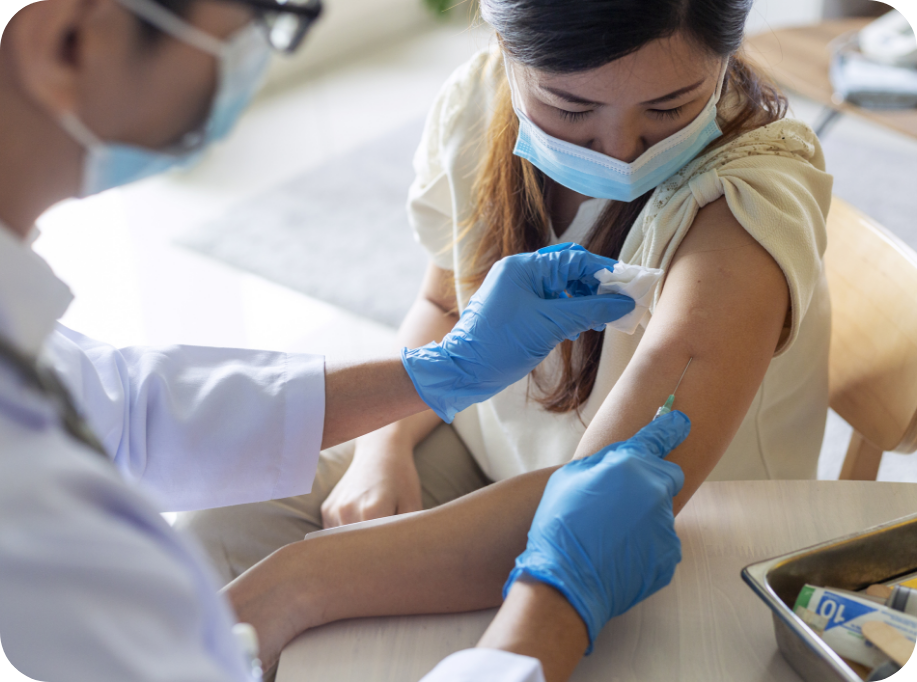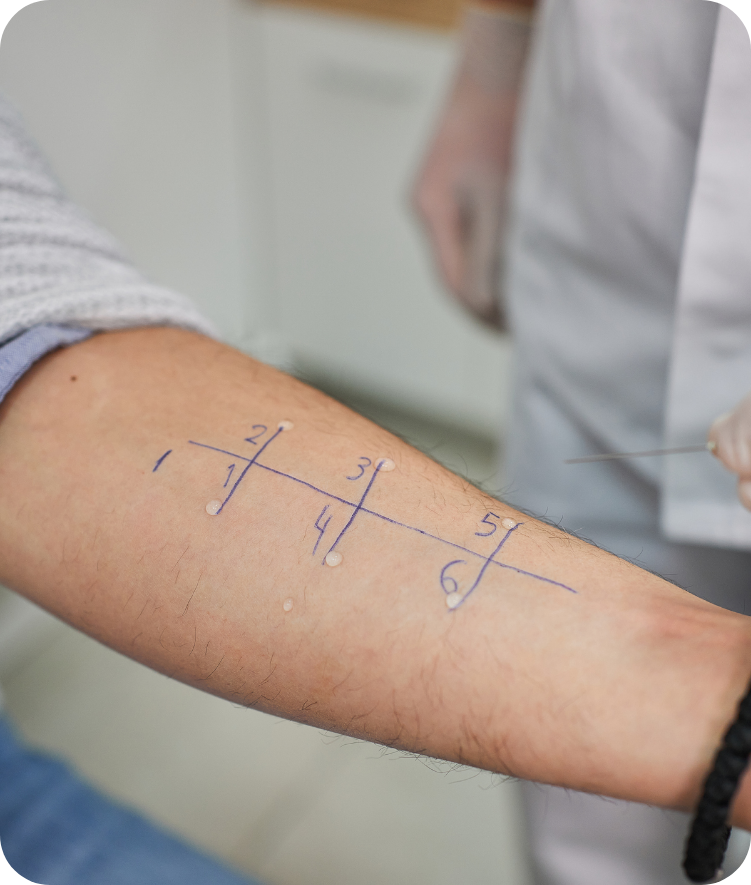Diagnosis and Assessment
The process begins with a comprehensive allergy evaluation to confirm a patient’s susceptibility to insect stings, particularly those causing anaphylaxis. Through detailed testing, your medical provider will identify the specific venom triggering allergic reactions.
Customized Treatment Plan
Once diagnosed, a personalized treatment plan is crafted. This involves the administration of gradually increasing doses of the identified venom through allergy shots. This method helps desensitize the immune system, reducing its hyperreactivity to insect stings over time.
Monitoring and Maintenance
Regular monitoring and adjustments are integral to the Venom Immunotherapy process. The patient receives Venom Immunotherapy shots on a scheduled basis, allowing healthcare professionals to carefully track progress and tailor the treatment as needed. With consistent therapy, the risk of systemic reactions to future insect stings is significantly diminished, providing a heightened level of safety and peace of mind.









